8 Ways to Improve The Fuel Efficiency of Your Car
Jack Dreyer | Monday 3rd June 2024 10:30am
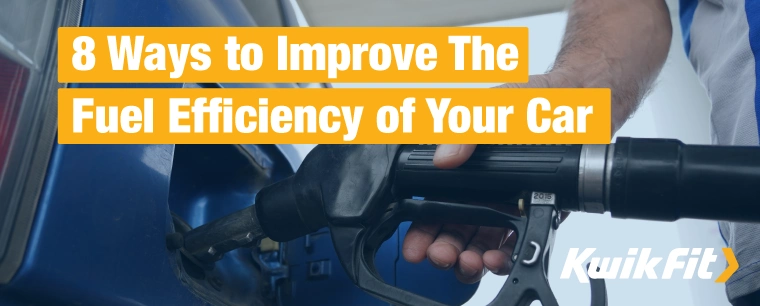
Running a car can be an expensive undertaking, especially when it comes to the cost of refuelling. Increasing fuel prices over the past few years has meant many drivers have been forced to consider other modes of transport to make essential journeys.
Gone are the days where fuel prices were low, and Diesel was significantly more expensive than unleaded. According to the AA, at the moment, fuel prices are higher than previous years, with unleaded prices seeing a rise from 143.5 p/litre last month to 145.3 p/litre now, and diesel prices up from 152.5 p/litre to 153.9 p/litre, resulting in the price difference between diesel and unleaded shrinking to only 8.6 p/litre. This more than ever, means that conserving and making the most of your carís fuel should be reserved where they can. Although lower fuel prices are preferred, there are plenty of other benefits around reducing the fuel consumption of your vehicle and getting more from a tank.
Here are our top 8 tips to help improve fuel efficiency.
1. Check your tyre pressure
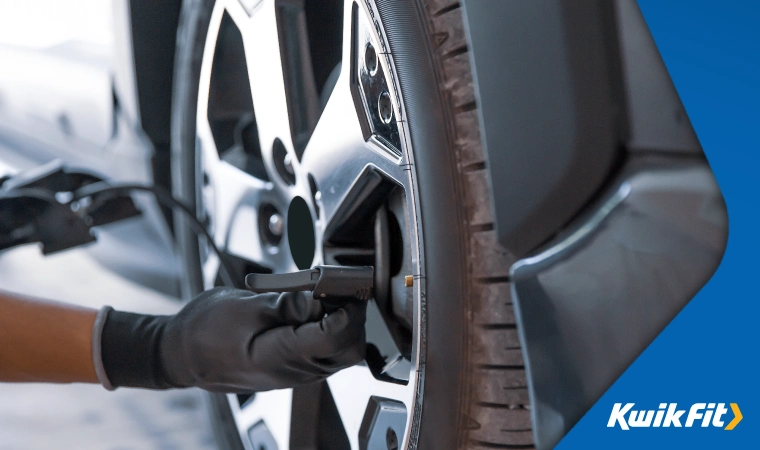
As tyres typically lose air naturally, at a rate of up to 2 PSI every month, checking your tyre pressure regularly can help you preserve your fuel for as long as you can. Ensuring the air in your tyres is topped up not only prolongs the life of the tread, but also improves fuel efficiency - as there is less rolling resistance with the road.
If your tyres are even slightly distorted due to incorrect tyre pressure, youíll be using more fuel to keep your car running smoothly. This is because of the added friction while driving that comes from a misshapen tyre. You can use our tyre pressure tool to check the recommended tyre pressure for your car.
2. Lighten the load

Weight is a major factor in how much petrol your car uses. The heavier the vehicle, the more fuel will be needed to keep it moving. This is especially true when driving in stop-start traffic, something that can be quite common when driving in busy city areas or on motorways.
Itís very easy to get into the habit of using your car as a storage space, with golf clubs or the pram sitting in the boot of your car. However, on average, an extra 50kg of weight in the car will increase fuel consumption by 1-2%. Therefore, itís best to only carry the essential things you need. So, it might be time to start decluttering your car, and leave those extra items at home if you donít intend on using them.
3. Use air con sparingly and re-gas regularly
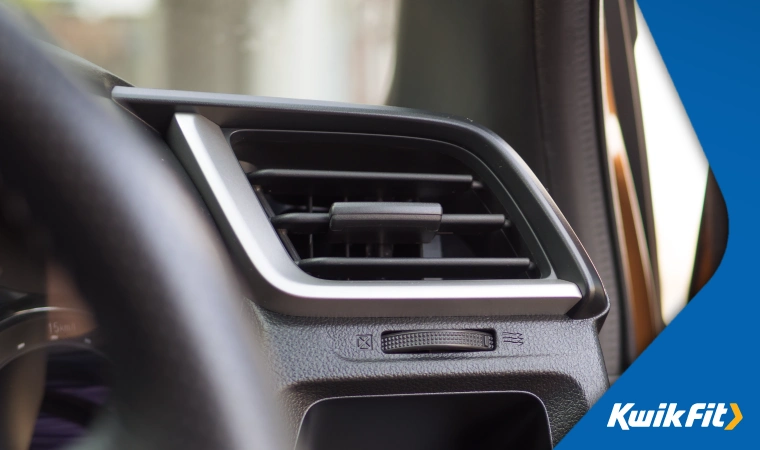
Itís recommended that your air-con system is regassed every two years. When your air-con refrigerant is low, your car air-conditioning system will start to blow warmer air into the cabin. This, in turn, means your air-con system will work harder to produce cold air, but will still be unable to. This additional effort places greater strain on the vehicleís engine, and, as a result, your car will be using more fuel.
Also, try to avoid excessive use of your air-con when stuck in traffic. Engines have to work harder in stop-start traffic, so using the air-con will only add to this strain and result in more fuel being used. In slow moving traffic, rolling down the windows is a much better choice. If itís been a while since youíve had your air-con tested, you can get a free air-con check with our air-con performance test.
4. Get a wheel alignment check
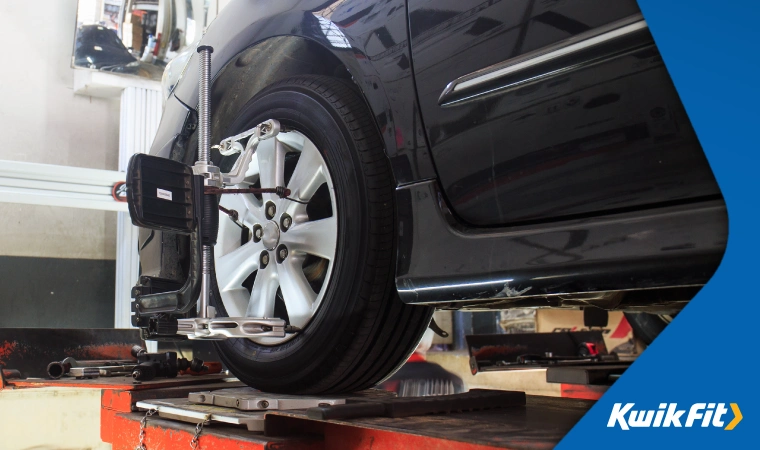
Correct wheel alignment has several benefits, the most important being safety. Having an alignment check annually helps your tyres to wear evenly and last longer, adding up to 12,000 miles to the life of your tyre! Due to the tiniest weight imbalance potentially leading to uneven tyre wear (not to mention a nasty vibration through the steering wheel), tyre balancing is essential as it ensures the tyre spins evenly around the axle.
Having even tyre wear around the circumference of the tyre reduces rolling resistance with the road which, as we already know from tip 1, helps to improve the fuel efficiency of the vehicle. Make sure your wheels are aligned regularly and wheels are balanced with our free Wheel Alignment and Tracking service.
5. Service your vehicle regularly
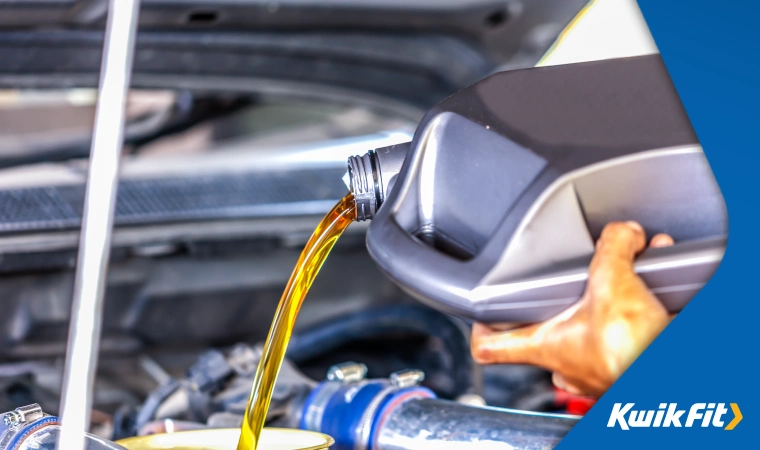
We recommend having an Interim Service every 6,000 miles or 6 months (whichever is sooner) to keep your car safe and roadworthy between full services. This is one of the best ways to ensure your car remains in the best shape and runs at the optimum standard youíve come to expect. Issues such as old spark plugs misfiring or motor oil degrading over time, which can be fatal to the smooth running of your vehicle, can be avoided by ensuring that you get your car serviced.
From checking the brakes to regular oil and filter changes, a Full Service can reduce the burden on your engine and help to provide improved MPG. A full car service also includes a series of essential checks, and should be carried out annually or every 12,000 miles (whichever comes first). You can choose from a range of our car service and MOT packages on our servicing page.
6. Watch your driving style
Your car isnít the only factor in improving fuel economy; you have a big part to play as well. Adopting bad driving habits, such as speeding and excessive acceleration at high revs, will almost certainly affect your fuel consumption. If your vehicle comes with cruise control, using it will help to maintain a constant speed and make the best use of your fuel. Sudden braking will also have a detrimental effect on your MPG so make sure you leave adequate space between yourself and the vehicle in front so youíre not constantly hitting the brake pedal.
7. Look for the EU Tyre Label
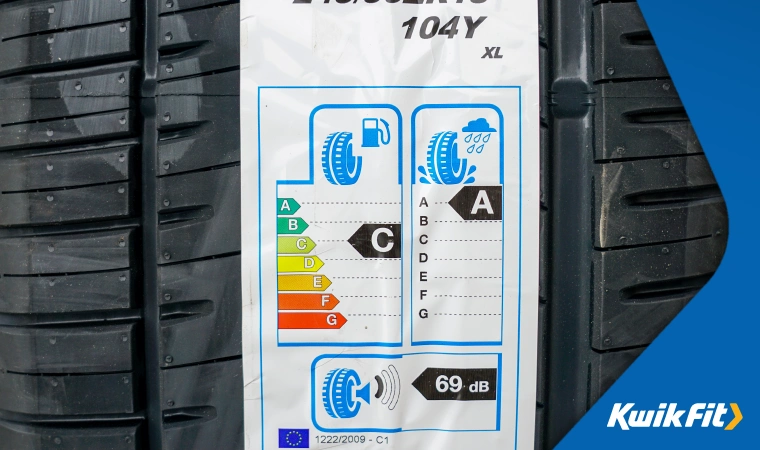
Tyres account for up to 20% of your carís fuel consumption, so itís important to choose the right ones. All new tyres purchased in the UK come with an EU Tyre Label, which is there to help you make an informed choice when choosing a new tyre. Tyres are rated in three categories: Fuel Efficiency, Wet Grip and Noise.
Fuel efficiency is rated on a scale from A to F, with an A-rating being the best result possible. These tyres require less energy to roll, and therefore burn less fuel. So, if you want new tyres with good fuel economy, look to the EU Tyre Label for guidance.
8. Use a fuel system cleaner
Tank-treatment fuel additives such as BG44K, which can be poured straight into the petrol tank, are an inexpensive way to restore performance and MPG. Deposits can build up in the fuel tank over time, leading to problems including engine surge, stalling and power loss. Fuel system cleaners contain high-quality detergents and additives which break down deposits in combustion chambers, intake manifolds, ports and on valves, as well as restoring flow in fuel injectors, effectively cleaning the entire fuel system.
Improve fuel efficiency with Kwik Fit
Many of the elements that have an impact on your carís fuel efficiency revolve around your vehicleís overall condition, meaning that itís always a good idea to ensure that itís performing at its best - from tyre pressure to the aircon gas.
Here at Kwik Fit, we offer a range of services that are designed to keep your car running smoothly. To find out more about the services that we offer or how we can help, visit our services page, stay up to date with our blogs, or simply pop into your local Kwik Fit Centre.
Any facts, figures and prices shown in our blog articles are correct at time of publication.
Featured Articles
Is it Illegal to Drive With One Headlight?
Saturday 19th July 2025
Wondering if itís illegal to drive with one headlight? Learn about the safety risks and penalties of illegal blown bulbs and why you should fix them promptly.
Air Con in EVs & Hybrids: Experts Answer Your Questions
Monday 30th June 2025
Does air con drain EV batteries? Can you use the air con while charging an electric car? Find out the answers to these questions & more from Kwik Fitís experts.
Why Is Your Car Making a Noise? Fixes & Tips
Friday 13th June 2025
When your car starts making unexpected noises, it can certainly be quite disconcerting; it may be nothing to worry about, but hereís what you need to know.









